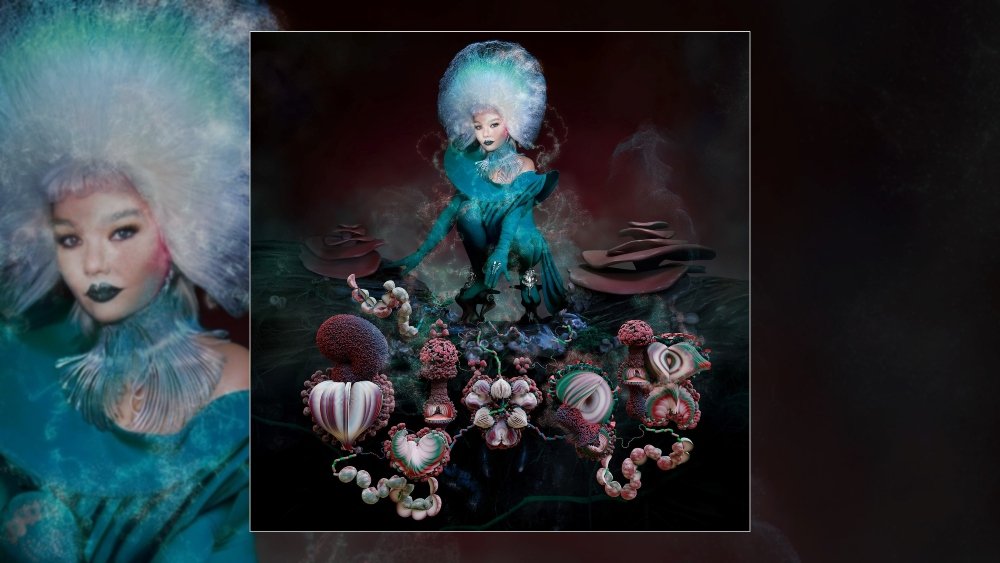Björk
Fossora
One Little Independent
Buy via Official Store | Listen Below
Björk does not do things in half measures. Each album appears as if freshly hewn from a new slab of granite or sculpted in a mighty oak tree for the purpose of communicating her theme or message. Biophilia (2011) was released as an app and Medulla (2004) was composed entirely of human voices including primal, guttural sounds that had barely punctured the world’s consciousness before she decided to show them. Whatever she does, she commits whole-heartedly to and often reaps the rewards as she straddles the worlds of popular and avant-garde music. Her sense of fearlessness is inspirational.
In an extensive, recent interview, she labelled her tenth studio album Fossora as a return to earth after the sky-bound haven of 2017’s Utopia. In characterizing it as something underground (literally, not metaphorically) she used the analogy of mushrooms and their mycelial networks—something that could shift and move (“pop up everywhere”) rather than remain largely in place like a tree root.
Thematically, Fossora covers the loss of her mother and the residual traces of post-divorce emotions to the accompaniment of her trademark mixture of highly organic sounds and technological wizardry alongside her completely unique voice and phrasing. And therein lies the key issue and problem for me.
There are undoubtedly moments of beauty throughout (very often in each and every song), moments of percussive power that demand attention and movement and her polysyllabic lyrics are emotive and urgently delivered. But it becomes far too crowded to make it an experience that satisfies. It is always interesting, but sometimes not especially pleasing to the ear.
“Ovule” is just one example. A warm melody opens proceedings alongside her textured backing vocals before the splatters of electronic percussion take over while she sings lines such as: “These obstacles are just teaching us so we can merge even deeper into our own personal mineral fuse alloy.” Then, while you are still trying to interpret the lyric, the pace drops to a crawl and the splatters reappear and it feels disjointed and uncomfortable. There is no flow, just disruption and a lack of space for the beautiful parts of the song to breathe. Which may be the whole point if we take her ever-shifting mycelial network notion at its word. Structuring it that way may be in keeping with the theme and intelligent, but it is not a cohesive and satisfying listening experience.
Watch the Official Videos (Playlist):
Contrast that with the beauty of “Sorrowful Soil,” where the melody is lovely, the voices arranged divinely and the lyrics straightforward and powerful—when stripped of the subterfuge and distraction her work is undeniable in its power and intent. This is again evident on “Ancestress,” where she reflects on her mother’s passing. Though not quite as straightforward, the arrangement is more restrained and controlled, allowing the beauty to shine through much more easily.
Sometimes we must accept that not everything is meant to be liked or consumed by everyone or indeed created with that intent in mind, and this album is a case in point. It may not be for me, but it may certainly be for others. Am I glad I listened to it? Undoubtedly, yes. Can I imagine a time when I will select it from my library to listen again? Probably not.
Notable Tracks: “Allow” | “Ancestress” | “Sorrowful Soil”
BUY Fossora via Björk’s Official Store
Note: As an Amazon affiliate partner, Albumism may earn commissions from products purchased or downloaded via links featured on our site.
LISTEN:


